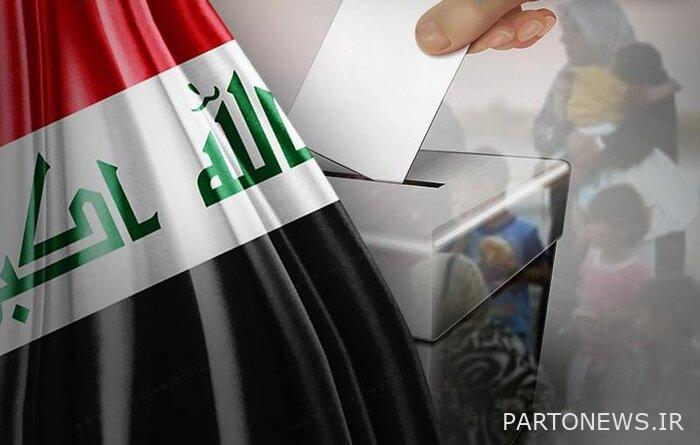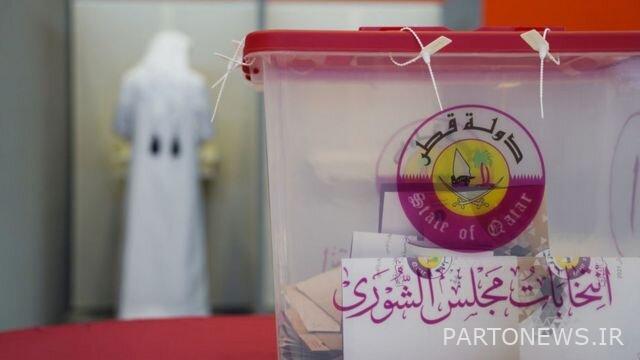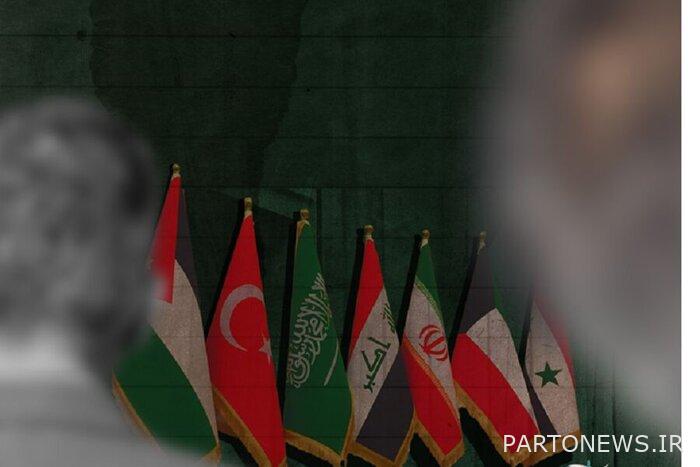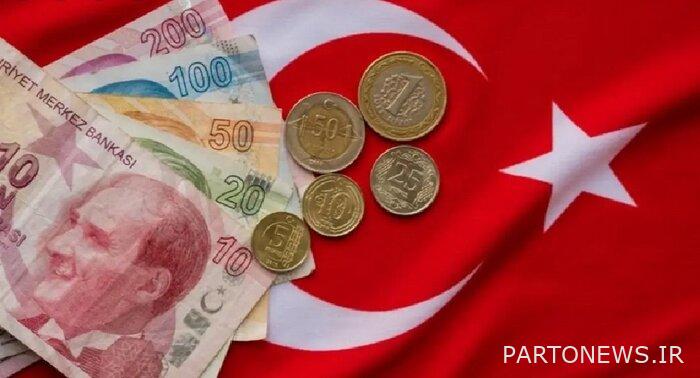The year the election changed the face of the Middle East

In the last days of last year, thousands of kilometers away from West Asia, there were developments that had a serious impact on the behavior and approach of the main actors in the region.
The 59th US presidential election in early November 2020 put an end to Donald Trump and his Middle East policy, as well as cases such as the Deal of the Century, and prompted Washington’s key partners in the GCC to reconsider their policies. Of course, the circle of electoral consequences affecting the developments in the Middle East in 2021 was not only trans-regional.
The change of government in Tehran following the late spring elections was a clear message to the region. Tehran’s negotiating team between Iran and the five remaining countries in the 2015 nuclear deal changed and new proposals were put on the table.Iran and a transformative election
Undoubtedly, the most important electoral event in the Middle East was the June 28 (June 18) elections in Iran and the presidency of Dr. “Seyed Ibrahim Raisi”, which marked a serious change in the direction of developments in the region.
The change of government in Tehran following the late spring elections was a clear message to the region, the Tehran negotiating team between Iran and the five remaining countries in the 2015 nuclear deal changed, new proposals were put on the table and, unlike the previous executive term, The field power of the Islamic Republic in the Middle East took on a clear form as a complement to diplomatic bargaining.
After the new government came to power in Tehran, although demands such as the presence of Arab governments in the new round of Iran-P4 + 1 nuclear talks continued, but serious changes took place in Tehran’s bilateral relations with Arab capitals, the main manifestation of which was the start of diplomatic consultations between Tehran and It was Riyadh; Negotiations mediated by the Baghdad government.
On the other hand, the leaders of countries such as the UAE also tried to open a new chapter in relations with the Islamic Republic of Iran in line with new regional and trans-regional developments. Following numerous consultations, the visit of Sheikh Tahnoon bin Zayed, the UAE National Security Adviser, to Tehran attracted a great deal of attention and a range of speculations.
“Changing the atmosphere of relations with Iran is important for the Emirati people from different aspects,” the think tank of the Persian Gulf International Assembly wrote. Abu Dhabi leaders are looking forward to lifting sanctions against the Islamic Republic to expand their legal trade with Iran. If the Vienna talks fail, the UAE’s economic interests will suffer.
Iraqi elections
The second most popular election was held in Iraq on October 10, 2021; The fifth parliamentary election, which significantly changed the composition of the forces present in the country’s legislature, will show its results in the next cabinet and the fate of the Green Zone.
After much controversy and protests by some Iraqi coalitions and prominent figures over the election results, the Iraqi Independent Election Commission (IEC) finally confirmed Sadr’s victory about a month ago and won the most parliamentary seats (73 out of 329 seats) and the Sunni Coalition (37 seats). ) Was placed after the Sadr stream.

According to some observers, Sadr’s differences with other Shiite coalitions, such as the State of Law and Al-Fatah (al-Hashd al-Shabi), will lead to changes in the direction of the future government in Baghdad.
The leader of Iraq’s Sadr faction, whose list won the most votes in the recent parliamentary elections, ended its meeting with representatives of a coalition called the “Coordination Framework” (which includes those complaining about the election results) to form a “national majority” government. The “neither Eastern nor Western” approach has been emphasized.
Iraqi President Barham Saleh recently signed a decree inviting parliament to convene on January 9, 2022. “I signed the presidential decree to convene a new parliament to convene on Sunday, January 9,” Saleh said in a tweet on his account.
Naphtali Bennett, known in Israeli politics as Benjamin Netanyahu’s apprentice, was able to end his 12 years as prime minister and usher in a new era of extremist domination in the occupied territories.The end of Netanyahu’s 12 years in the occupied territories
After March 23, 2021 (April 3), after 2 years of political crisis that prevented the formation of a cabinet in the Zionist regime, finally, “Naftali Bennett”, who is known in Israeli politics as the trainee of “Benjamin Netanyahu” was able to End his 12 years as prime minister and begin a new era of extremist rule in the occupied territories.
Although Netanyahu accuses his rivals of fighting the moderates and, to a lesser extent, the Zionist regime, and consequently of being careless with foreign enemies, especially the Islamic Republic of Iran, the activities of the new Zionist cabinet show that Tel Aviv’s policies continue unchanged. Some observers of Middle East issues have increased all kinds of threats of the Zionist regime against Iran in the new era; From repeated threats of military strikes against Iran’s nuclear facilities to the spread of conflict in the cyber and communications fields.
On the other hand, and comparing the approaches of the two cabinets of Netanyahu and Bennett to the nuclear talks, the differences in tactics between the two are of interest to many observers. In their view, although both are in the strongest position to oppose the revival of Borjam, the previous cabinet did not hesitate to confront the US administration during the previous Iran-P5 + 1 talks, while Bennett’s policy is not against Tehran. Putting pressure on the Biden government is a sign of maximum coordination with the democratic government as well as the European capitals.
Voting on the southern shore of the Persian Gulf
The effects of hosting the 2022 World Cup were not limited to sports, economics, etc., and the transformation of Qatar as a family kingdom led to the holding of the country’s first parliamentary elections in early October (mid-October).
Al-Jazeera reported that the turnout in the Qatari parliamentary elections was more than 65%; A parliament in which a tumultuous competition was held for 30 elected seats to determine the task of 15 appointed seats by Sheikh Tamim bin Hamad Al Thani.

The duties of the Qatari parliament include proposing laws, approving the budget, and giving a vote of confidence to the ministers, although the law stipulates that the emir of the country can vote to dissolve it without any problems.
The effects of hosting the 2022 World Cup were not limited to sports, economics, etc., and the transformation of Qatar as a family kingdom led to the holding of the country’s first parliamentary elections in early October (mid-October).In the Qatari elections, only those whose families had lived in the country before 1930 had the right to vote. Also, given that only about 10 percent of Qataris have citizenship, the limited circle of voters has drawn widespread criticism, with some analysts pointing out that Qatar’s political and civic differences with previous World Cup hosts are more pronounced. He took a picture.
Syria and Algeria are also witnessing the elections
In the year that the Qataris also held elections, Syrians went to the polls on May 26 to elect their president. Palace of Al-Rawdha “remained.
Although the United States and European governments questioned the Syrian election, this did not stop the Arab states from normalizing relations with Damascus. One of the turning points in the process of normalizing relations with Syria was the visit of the UAE Foreign Minister to Damascus in mid-autumn; A journey that was unprecedented after the start of the Syrian civil war and over the past decade.
Algeria was another Middle Eastern country that held general elections in 2021. The elections in this Arab country were important because it was the first national political competition after the fall of “Abdul Aziz Bouteflika”.
In the Algerian parliamentary elections, although the ruling National Liberation Front won more than 100 seats in the legislature, it was a significant drop from a total of 407 seats. The Liberation Front also managed to maintain its lead in the local elections in competition with other parties.
One of the turning points in the process of normalizing relations with Syria was the visit of the UAE Foreign Minister to Damascus in mid-autumn; A journey that was unprecedented after the start of the Syrian civil war and over the past decade.Increase the acceleration of diplomacy; Another feature of the Middle East 2021
In addition to the elections that affected the Middle East in 2021, the diplomatic process accelerated and changed direction.
In parallel with the resumption of nuclear talks between Iran and members of Borjam, as well as the Tehran-Riyadh talks, which aimed at goals such as the reopening of political representation between the two sides, many analysts see trends such as the Baghdad Cooperation and Partnership Summit in 2021 at the center. Arab diplomatic developments took place in the region.

In other words, diplomatic consultations on the normalization of Arab states’ relations with the Washington-centric Zionist regime stalled with Trump’s departure from the White House, allowing each of these states to enter separately into overt and covert relations with Tel Aviv. An objective manifestation of this situation was the visit of the Prime Minister of the Zionist regime to the UAE, which is considered an unprecedented event.
On the other hand, the Iraqi government tried to focus on diplomatic consultations to reduce regional disputes and tensions, and late last summer, representatives of the Islamic Republic of Iran, Arab countries and trans-regional actors such as France met in the Iraqi capital.
Processes such as the Baghdad Cooperation and Participation Summit in 2021 became the focus of Arab diplomatic developments.The Middle East economy and the continuing challenges of the corona and the devaluation of national currencies
However, some Middle Eastern countries, such as Bahrain and the UAE, as well as the Zionist regime, tried to show their leadership in the field of vaccination, and in a short time, due to their small populations, registered more than 100% of vaccinated citizens. Controlling the Corona crisis may show some strength, but the region’s economies in general did not have favorable conditions in 2021.
People in Iraq, Turkey, Lebanon, and Iran have at times experienced declining currencies and challenges such as budget deficits, and this has not been limited to these countries, but major economies in the Middle East have also faced significant challenges.

Saudi Arabia has announced that it will issue more than $ 33 billion in debt in 2021. According to the Saudi finance minister, about 125 billion rials ($ 33.287 billion) in financing has been provided through bonds to help the government overcome the risks of interest rate fluctuations.
Transformation Centers 2022
Following the developments, many analysts have raised the issue of the fate of the nuclear talks, the outcome of the Tehran-Riyadh regional talks, the possibility of the Saudis reconsidering their policies in the Yemeni war (given Ansarullah’s removal from the US government’s list of terrorist groups and the announcement of the end). Washington’s support for the Saudi belligerence in Yemen), the continuing pressures and tensions of the Zionist regime against Iran, and the fate of Western military forces, especially American ones, in the regional bases have been pointed out as the focal points of transformation in 2022.
.

